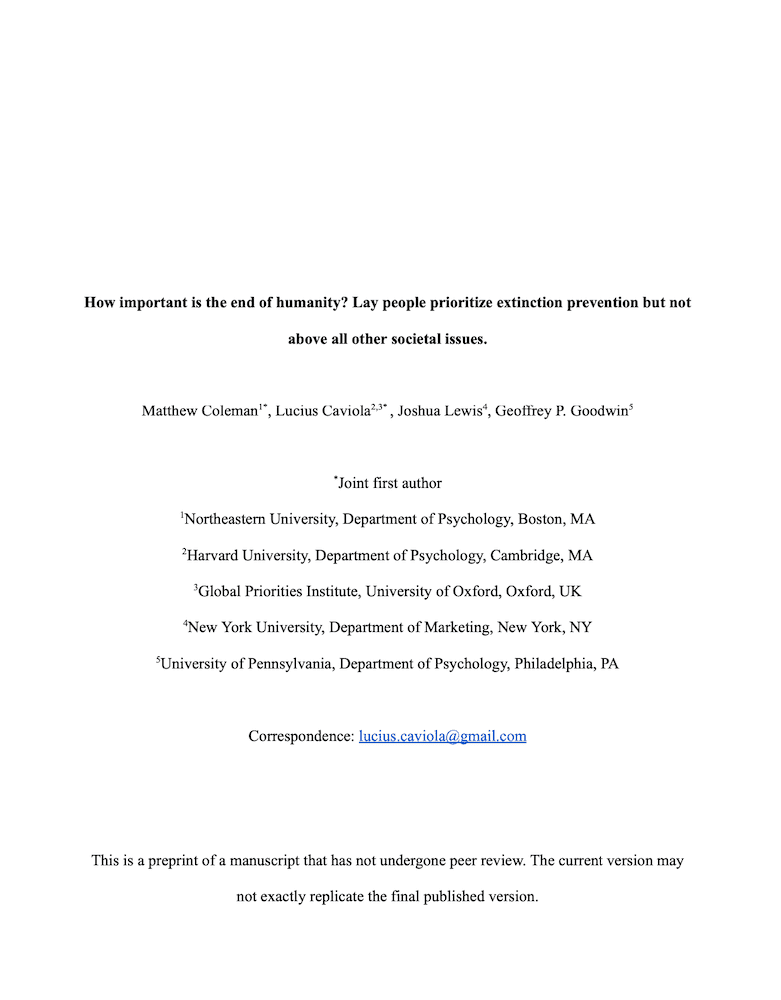How important is the end of humanity? Lay people prioritize extinction prevention but not above all other societal issues.
Matthew Coleman (Northeastern University), Lucius Caviola (Global Priorities Institute, University of Oxford), Joshua Lewis (New York University) and Geoffrey Goodwin (University of Pennsylvania)
GPI Working Paper No. 1-2024
Human extinction would mean the deaths of eight billion people and the end of humanity’s achievements, culture, and future potential. On several ethical views, extinction would be a terrible outcome. How do people think about human extinction? And how much do they prioritize preventing extinction over other societal issues? Across six empirical studies (N = 2,541; U.S. and China) we find that people consider extinction prevention a global priority and deserving of greatly increased societal resources. However, despite estimating the likelihood of human extinction to be 5% this century (U.S. median), people believe the odds would need to be around 30% for it to be the very highest priority. In line with this, people consider extinction prevention to be only one among several important societal issues. People’s judgments about the relative importance of extinction prevention appear relatively fixed and are hard to change by reason-based interventions.
Other working papers
The end of economic growth? Unintended consequences of a declining population – Charles I. Jones (Stanford University)
In many models, economic growth is driven by people discovering new ideas. These models typically assume either a constant or growing population. However, in high income countries today, fertility is already below its replacement rate: women are having fewer than two children on average. It is a distinct possibility — highlighted in the recent book, Empty Planet — that global population will decline rather than stabilize in the long run. …
A paradox for tiny probabilities and enormous values – Nick Beckstead (Open Philanthropy Project) and Teruji Thomas (Global Priorities Institute, Oxford University)
We show that every theory of the value of uncertain prospects must have one of three unpalatable properties. Reckless theories recommend risking arbitrarily great gains at arbitrarily long odds for the sake of enormous potential; timid theories recommend passing up arbitrarily great gains to prevent a tiny increase in risk; nontransitive theories deny the principle that, if A is better than B and B is better than C, then A must be better than C.
The Shutdown Problem: An AI Engineering Puzzle for Decision Theorists – Elliott Thornley (Global Priorities Institute, University of Oxford)
I explain and motivate the shutdown problem: the problem of designing artificial agents that (1) shut down when a shutdown button is pressed, (2) don’t try to prevent or cause the pressing of the shutdown button, and (3) otherwise pursue goals competently. I prove three theorems that make the difficulty precise. These theorems suggest that agents satisfying some innocuous-seeming conditions will often try to prevent or cause the pressing of the shutdown button, even in cases where it’s costly to do so. I end by noting that…

